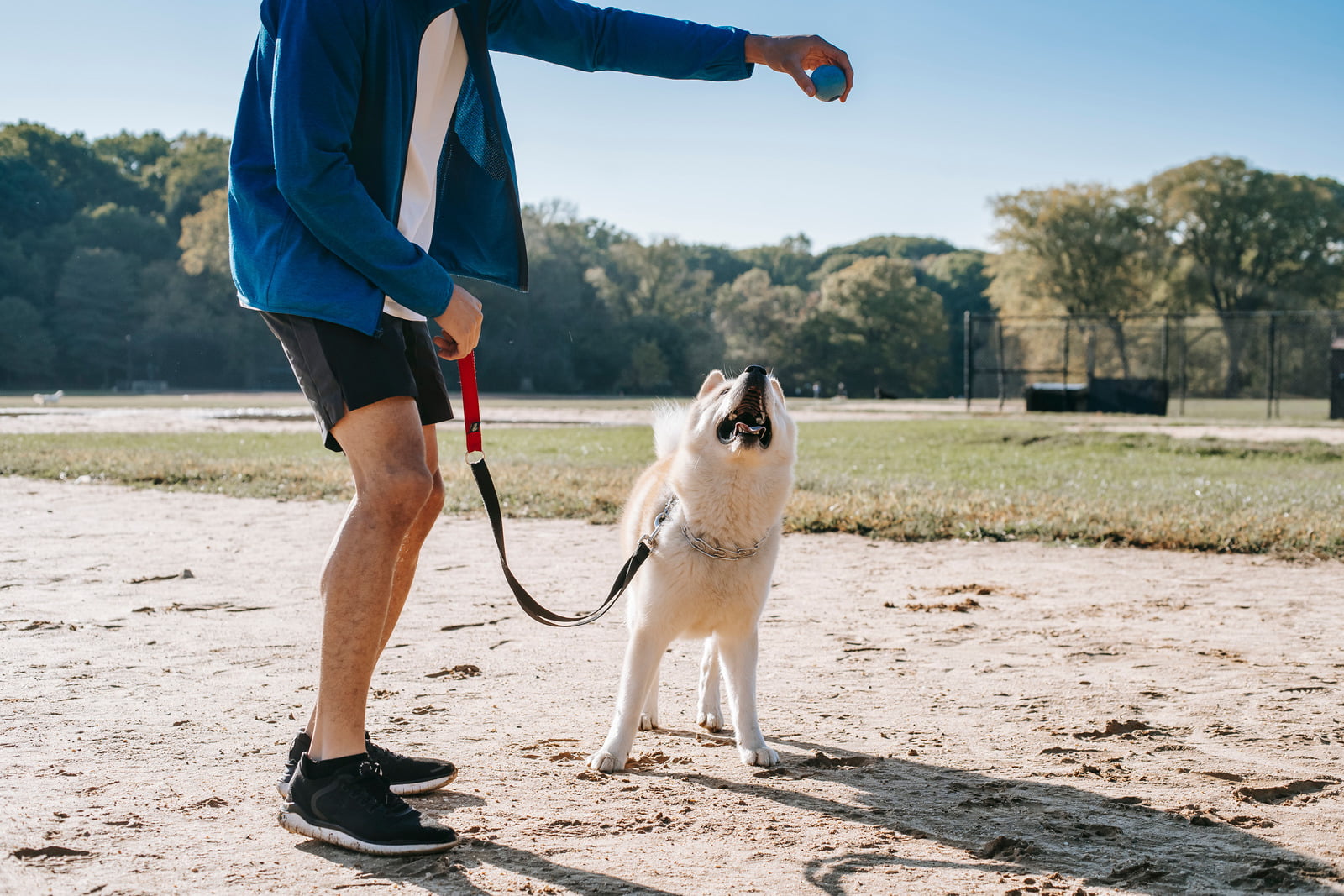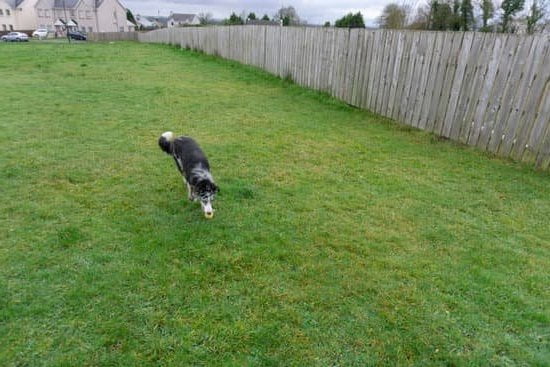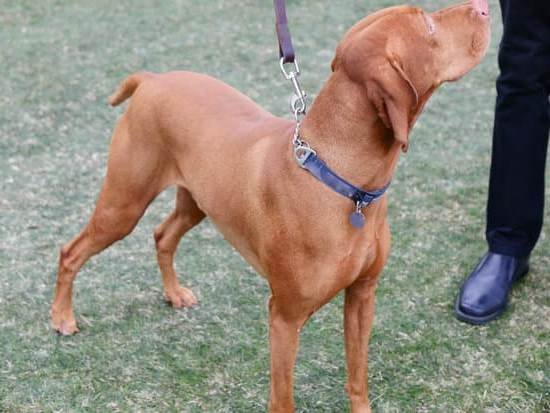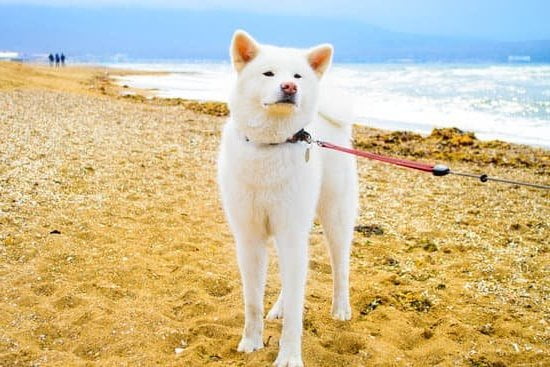Are you looking to take your dog’s training to the next level? Have you ever considered teaching your furry friend some advanced tricks? If so, learning how to train your dog to do a wall handstand can be a fun and rewarding challenge.
In this article, we will delve into the world of advanced dog training and provide you with a comprehensive guide on how to teach your dog the impressive wall handstand trick. We will explore the fundamentals of dog training, discuss the benefits of teaching your dog new tricks, and offer valuable tips for preparing your pup for advanced training.
Whether you are a seasoned pet owner or a novice in the world of dog training, understanding the basics is crucial before embarking on any advanced training journey. From establishing clear communication with your pet to using positive reinforcement techniques, laying a solid foundation is essential in setting the stage for successful training sessions. So let’s dive into the world of dog training and uncover what it takes to turn your canine companion into an impressive trick-performing superstar.
The Benefits of Teaching Your Dog New Tricks
Teaching your dog new tricks goes beyond just showing off their impressive skills to family and friends. It offers numerous benefits for both you and your furry companion. Here are some advantages of teaching your dog new tricks:
1. Mental stimulation: Just like humans, dogs also need mental exercise to keep their minds sharp. Teaching them new tricks stimulates their brain and prevents boredom, which can lead to destructive behavior.
2. Bonding with your dog: Training sessions provide an excellent opportunity for you to bond with your dog. Spending quality time together strengthens the bond between you and your pet.
3. Improved obedience: Learning new tricks reinforces obedience in your dog and helps them understand and follow commands more effectively in different situations.
In addition to these benefits, teaching advanced tricks like the wall handstand can be particularly rewarding for both you and your dog. It challenges them physically and mentally, and it’s always impressive to see a furry friend show off such a unique skill. If you’re ready to take on the challenge of teaching this advanced trick, continue reading for a step-by-step guide on how to train your dog to do a wall handstand.
- Start with basic obedience training
- Gradually introduce balancing exercises
- Use positive reinforcement techniques
Preparing Your Dog for Advanced Tricks
Once your dog has mastered the basic commands and tricks, you may be interested in teaching them more advanced tricks, such as the wall handstand. However, it’s important to ensure that your furry friend is ready for these more challenging skills before diving in.
Consider the following steps to prepare your dog for advanced tricks:
1. Strengthen basic obedience: Before moving on to advanced tricks, ensure that your dog has a solid foundation in basic obedience commands such as sit, stay, down, and come. This will help them better understand and respond to more complex instructions.
2. Build physical endurance: Advanced tricks may require more physical strength and endurance from your dog. Engage in regular exercise and play with your dog to help them develop the necessary muscle strength and stamina.
3. Mental stimulation: Keep your dog mentally engaged by introducing puzzle toys, interactive games, and training sessions. Mental stimulation is just as important as physical exercise in preparing your dog for advanced tricks.
By following these steps, you can better prepare your dog for learning advanced tricks like the wall handstand. Once you feel confident in your dog’s readiness, you can begin introducing them to more challenging skills while keeping their safety and well-being a top priority.
Introduction to the Wall Handstand Trick
Teaching your dog new tricks can be a fun and rewarding experience for both you and your furry companion. One of the more advanced tricks that can impress your friends and family is the wall handstand. This trick involves your dog balancing on their front legs against a wall, creating an impressive and entertaining display of strength and skill.
Before diving into teaching this advanced trick, it’s important to have a solid understanding of the basics of dog training. Positive reinforcement, patience, consistency, and clear communication are key elements in any training program. Understanding these fundamentals will help you effectively teach your dog the wall handstand trick while fostering a positive learning environment for them.
The wall handstand not only showcases your dog’s physical abilities but also stimulates their mental faculties. It requires coordination, strength, and focus from your dog, which can keep their mind engaged and provide valuable physical exercise. Additionally, successfully teaching this trick can strengthen the bond between you and your pet as you work together towards a common goal.
Now that we’ve covered the basics of dog training and the benefits of teaching new tricks, let’s delve into preparing your dog for advanced tricks like the wall handstand.
Step-by-Step Guide on How to Teach Your Dog to Do a Wall Handstand
Teaching your dog new tricks can be a fun and rewarding experience for both you and your furry friend. One advanced trick that is sure to impress is the wall handstand. This trick not only showcases your dog’s athleticism but also strengthens the bond between you and your pet. In this section, we will provide a step-by-step guide on how to train your dog to do a wall handstand.
Before diving into teaching your dog the wall handstand, it’s important to ensure that they have mastered basic obedience commands such as sit, stay, and lie down. These foundational skills will make it easier for your dog to understand and execute the movements required for the wall handstand. Additionally, having a strong foundation in obedience training will help create a positive training environment for both you and your dog.
To begin training your dog for the wall handstand, start by teaching them the “up” command, which involves having them stand on their hind legs with their front paws in the air. Use treats or toys to encourage this behavior and be sure to reward them when they successfully perform the command. Once they have mastered this step, gradually introduce them to the wall by having them place their front paws against it while standing on their hind legs.
As your dog becomes more comfortable with being near the wall, gently guide them into performing a partial handstand by using treats as motivation. Gradually increase the duration of the handstand while providing positive reinforcement each time they complete the action successfully. With patience and consistency, your dog will eventually learn how to perform a full wall handstand.
| Step | Description |
|---|---|
| 1 | Master basic obedience commands |
| 2 | Teach “up” command |
| 3 | Introduce dog to the wall |
| 4 | Guide into partial handstand position |
Tips for Overcoming Challenges During Training
Training your dog to do advanced tricks such as the wall handstand can be a challenging task, but with patience and persistence, it is definitely achievable. One of the key tips for overcoming challenges during training is to break down the trick into smaller, more manageable steps. This will help your dog understand and master each component of the trick before putting them all together.
Another helpful tip is to use positive reinforcement during training. Rewarding your dog with treats, praise, and affection when they make progress or perform the trick correctly will encourage them to continue trying. It’s important to be consistent with your rewards and praise so that your dog understands what behavior you are asking for.
Additionally, staying calm and patient during training sessions is crucial. Dogs can pick up on their owner’s emotions, so if you become frustrated or impatient, it can affect your dog’s willingness to learn. Remember that every dog learns at their own pace, and it’s important to remain positive and supportive throughout the training process.
Consistency, patience, positive reinforcement, and breaking down the trick into smaller steps are key elements in successfully overcoming challenges when teaching your dog the wall handstand trick. With dedication and perseverance, you will be able to train your dog to perform this impressive and fun trick.
Safety Precautions When Teaching Advanced Tricks
When teaching your dog advanced tricks such as the wall handstand, it is important to prioritize safety at all times. This not only ensures the well-being of your canine friend but also creates a positive and secure environment for learning. Here are some essential safety precautions to keep in mind during the training process:
Start With a Health Check
Before embarking on teaching your dog advanced tricks, it is crucial to have them undergo a thorough health check. Consult with a veterinarian to ensure that your dog is physically fit and free from any underlying health issues that could be exacerbated during training. Additionally, if your dog has any pre-existing medical conditions, it is important to discuss with the vet how the training may impact their health.
Use Proper Equipment
When teaching advanced tricks like the wall handstand, it is essential to invest in high-quality training equipment. For example, if you are using a prop or platform for the trick, ensure that it is sturdy and safe for your dog to use. Additionally, always use harnesses or leashes that are designed specifically for training purposes to prevent any accidents or injuries.
Supervise Closely
During the initial stages of training for the wall handstand trick, it is crucial to closely supervise your dog at all times. This helps you intervene immediately in case of any signs of discomfort or distress during the training process. By being attentive and responsive to your dog’s body language, you can ensure that they feel safe and secure while learning this advanced trick.
By incorporating these safety precautions into your training regimen, you can create a secure and positive environment for teaching advanced tricks like the wall handstand to your furry companion while minimizing potential risks or injuries.
Building a Strong Bond With Your Dog Through Training
Patient and Positive Reinforcement
One of the key elements in building a strong bond with your dog during training is being patient and consistent. Dogs respond well to positive reinforcement, so be sure to praise and reward them when they make progress, no matter how small. As you work on teaching them the wall handstand trick, remember that it may take time for them to understand and execute the skill. Stay patient and avoid getting frustrated if they don’t grasp it right away.
Spending Quality Time Together
Training sessions provide an excellent opportunity for you to spend quality time with your dog. This interaction allows you to observe their behavior closely, understand their learning style, and strengthen the communication between you two. Whether it’s practicing the wall handstand or other tricks, bonding through training helps create a deeper connection with your pet.
Trust-Building Activities
Engaging in activities that require trust can greatly enhance the bond between you and your dog. Teaching them advanced tricks like the wall handstand develops their confidence while relying on you for guidance and support. Trust-building activities contribute to a stronger relationship built on mutual understanding and respect.
By focusing on building a strong bond with your dog during training, you not only teach them new skills but also nurture a deeper connection that will last a lifetime. The process of training together strengthens the bond between pet and owner while creating an enriching experience for both parties involved.
Troubleshooting Common Issues in Teaching the Wall Handstand Trick
As you start teaching your dog the wall handstand trick, it’s important to understand that there may be some challenges along the way. Just like any other training, mastering the wall handstand requires patience, consistency, and understanding. One common issue that dog owners may face is their dog’s fear or hesitation to lean against the wall. This can be due to a lack of confidence or past negative experiences with walls.
To overcome this issue, start by building your dog’s confidence through positive reinforcement and basic obedience training. Practice simple commands such as sit, stay, and come in different environments to help your dog feel comfortable and secure. Gradually introduce the wall handstand trick by using treats and praise to encourage your dog to lean against the wall without feeling anxious or scared.
Another common challenge in teaching the wall handstand trick is maintaining balance and coordination. Some dogs may struggle with finding their center of gravity while attempting the trick, leading to frustration for both you and your furry friend.
To address this issue, focus on strengthening your dog’s core muscles through regular exercise and physical activities such as walking, running, and playing fetch. Additionally, practice short training sessions with frequent breaks to prevent mental fatigue and allow your dog to rest before trying again.
Moreover, if your dog is not responding well to the initial steps of learning the wall handstand trick, it’s essential to assess your training methods and techniques. Consider if you’re providing clear instructions, using effective communication signals, and creating a positive learning environment for your dog.
Remember that every dog is unique and may require different approaches when it comes to learning advanced tricks like the wall handstand. Be patient and stay consistent in your training efforts while remaining attentive to how well your furry companion is responding.
Overall, troubleshooting common issues in teaching the wall handstand trick involves understanding your dog’s individual needs, addressing any fears or physical limitations, and consistently practicing positive reinforcement techniques during training sessions. Keep in mind that every hurdle you overcome together will only strengthen the bond between you and your canine companion as you work towards achieving new milestones in training.
Celebrating Success and Enjoying the Process of Training Your Dog
In conclusion, training your dog to do a wall handstand can be a challenging but ultimately rewarding experience. By understanding the basics of dog training and the benefits of teaching your furry friend new tricks, you can prepare them for more advanced skills like the wall handstand. While it may take time and patience, building a strong bond with your dog through training is key to successfully teaching them this impressive trick.
The step-by-step guide provided in this article can serve as a useful resource for dog owners who are eager to train their pets in the art of doing a wall handstand. It’s important to remember that every dog learns at their own pace, and overcoming challenges during training is all part of the process. By taking safety precautions and troubleshooting common issues, you can ensure that both you and your dog enjoy the training journey.
Ultimately, celebrating success and enjoying the process of training your dog is what makes it all worthwhile. The sense of accomplishment when your canine companion finally masters the wall handstand trick is truly gratifying. So, embrace the adventure, stay patient, and remember to have fun with your furry friend as you embark on this thrilling endeavor of teaching them new tricks.
Frequently Asked Questions
How Do I Teach My Dog to Back Up the Wall?
Teaching your dog to back up against the wall can be done with positive reinforcement training. Use treats to lure your dog towards the wall, and gradually increase the distance as they get more comfortable.
Can Dogs Do Handstands?
While dogs may not be able to do traditional handstands like humans, they can be trained to balance on their front legs for short periods of time. This requires patience, practice, and a good understanding of your dog’s physical capabilities.
How Do I Teach My Dog to Jump Off the Wall?
To teach your dog to jump off the wall, start by getting them comfortable with standing near the wall. Then, use a target such as a toy or treat to encourage them to jump from the wall towards you. Gradually increase the distance as they get better at the skill.

Welcome to the blog! I am a professional dog trainer and have been working with dogs for many years. In this blog, I will be discussing various topics related to dog training, including tips, tricks, and advice. I hope you find this information helpful and informative. Thanks for reading!





